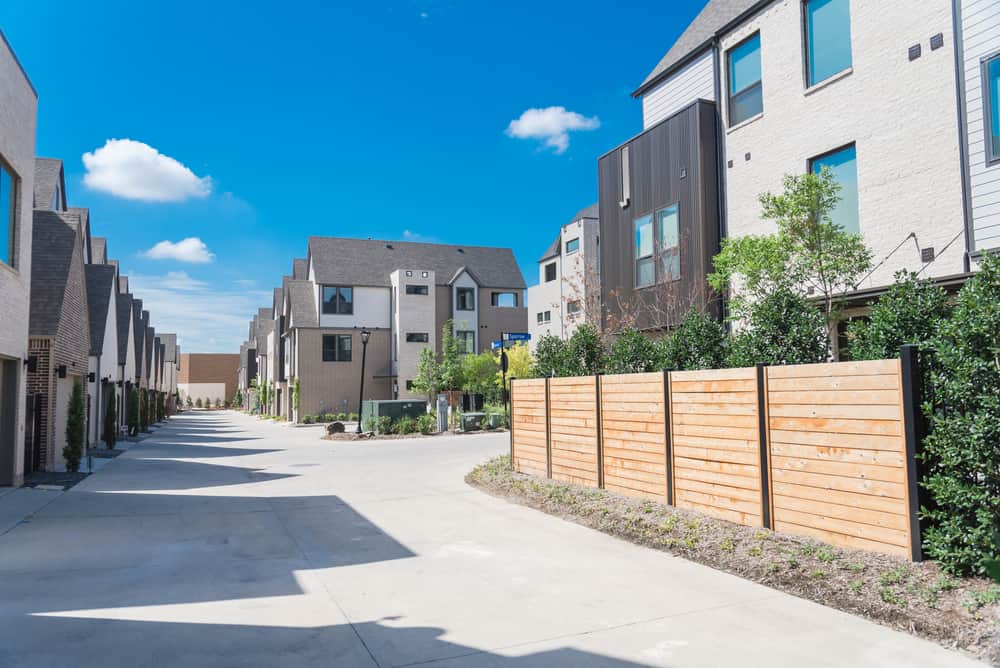Homeowners and investors alike need to know all about local zoning laws and their exceptions when buying or developing property. Among the most important of these exceptions is variance: an exception for a local zoning law that may allow investors or homeowners to adjust or expand their property to achieve a specific goal.
However, variance is not the same as a permanent change to local zoning requirements, nor is it the same as property rezoning. Today, let’s explore variance in real estate so you know when it may apply to your property and zoning restrictions.
What is Zoning?
“Zoning” essentially dictates the kinds of properties that can exist side-by-side in a specific area and which properties are beholden to specific zoning laws. Zoning laws, in turn, affect how their land can be developed, utilized, or adjusted by investors or homeowners. Zoning laws are typically bundled with zoning classifications, such as commercial zones, residential zones, industrial zones, etc.
In practical terms, zoning and zoning laws keep residential homes grouped together in neighborhoods, prevent industrial property from spilling over into recreational areas, and more. Furthermore, zoning can protect the value of homes – if you’re a home investor, zoning laws ensure that the properties you purchase will retain or increase in value since they prevent a factory from being set up next to them.
That said, zoning can also be restrictive and limit the developments you can pursue.
[ Thinking about investing in real estate? Register to attend a FREE online real estate class and learn how to get started investing in real estate. ]

What is a Variance in Real Estate?
A variance in real estate is an exception to any local zoning law; think of it as a waiver for any standard zoning regulation. As opposed to zoning law changes, which affect all properties in a zone, a variance may only be granted on a case-by-case basis and only applies to specific requests made by property owners or investors.
Additionally, zoning variances stick with the land they are applied to. For example, suppose a homeowner receives a variance so they can build a shed that’s a little larger than zoning restrictions normally allow. In that case, the next homeowner will continue to receive the variance exception even if they decide to remove the shed or build something else in its place.
Alternatively, a homeowner may want to install a fence that is higher than average, build a chicken coop, or develop something else on their property that goes against typical zoning laws. Or a homeowner may wish to convert their home into a small business storefront, in which case they would need a variance to avoid violating local residential zoning laws.
Overall, a variance in real estate is any exception to traditional zoning laws that must be requested on a case-by-case basis.
One more thing: variances apply both to physical property, and the things property owners may wish to add or develop with their homes. For instance, variances can affect where a home is positioned, how far it is set back from a road or driveway, and so on.
What Are the Different Types of Variances in Real Estate?
There are two different types of variances homeowners and investors can request. Let’s break down both types of variances in more detail; this will help you understand which variance you need to request for your property or goals.
- Area variance
- Use variance
Area Variance
An area variance is the most common type of zoning appeal. With an area variance, a homeowner or investor requests that they use their land in a way not usually allowed by the physical or dimensional restrictions laid out in zoning requirements.
In essence, an area variance applies when a homeowner wants to change the property physically instead of change how the property is used. Examples of area variances can include:
- Putting up a fence where fences are not normally allowed, or setting up a larger than average fence
- Building a property closer to a roadway than is normally allowed
- Building a structure larger or higher than is usually permitted by zoning ordinances
Use Variance
A use variance is the exact opposite; it’s an exception that allows a homeowner or investor to use property contrary to what zoning laws normally permit. Investors are more likely to request use variances, whereas homeowners are more likely to request area variances.
Some examples of use variances include:
- Turning a home into a small office or storefront
- Turning a single-family home into a multi-family home
- Building an industrial building in an area for commercial or residential use
How to Get a Variance in Real Estate?
Remember, all real estate variances are determined locally rather than at the state or federal level. Because of this, you’ll need to know how to request a variance for real estate by following the proper channels and steps if you want the best chance of getting approved.
- Write a variance letter
- Fill out an application
- Wait for a decision
- Appeal if rejected
1. Write a Variance Letter
While the exact rules you need to follow could vary depending on your local laws, most variance requests begin with a letter. Variance letters can be written by a property owner or their attorney – in fact, having an attorney look over your variance letter is usually recommended as they can make sure your letter adheres to local regulations or requirements.
Regardless, a good variance letter explains exactly what the property owner wants to do and why variance is needed to circumvent local zoning laws. The letter should be as explicit and clear as possible so that authorities know which laws you want to challenge and can make a decision more quickly.
2. Fill Out an Application
Next, you’ll need to fill out an application for a real estate variance (and usually pay a fee). Variance applications are quite rigorous, as they usually require you to prove why your variance is necessary. Specifically, you’ll need to prove:
- That the local zoning laws currently cause you unnecessary hardship or challenge to your development plans
- That the hardship is because of limitations that are unique to your property (and are not shared by other buildings in the area)
- That your variance will not harm public interests if it is granted
In general, all three of the above criteria have to be satisfied for your real estate variance to be approved.
3. Wait for a Decision
After submitting your variance letter and application, all that’s left is to await a decision. Your local zoning board will weigh one way or the other depending on how they read local zoning laws. If your request is accepted, you’ll get a permit to continue with construction or development.
4. Appeal if Rejected
But if your variance request is rejected, you can always appeal the process through a public hearing on the zoning issue in question. In many cases, your local zoning board will tell nearby property owners about what you have requested – this allows them to come to the hearing to weigh in on the matter one way or the other, which may affect the appeals decision.

Can Neighbors Stop a Variance?
Generally, neighbors can only stop a variance during the public appeals process. In these cases, the petitioner or homeowner must prove that the variance is necessary and will not cause an issue for their neighbors if the variance is granted.
Summary
A real estate variance is an exception to local zoning regulations that allows homeowners or investors to either develop or use their real estate in ways that are normally not allowed. A variance in real estate must be requested from local zoning boards and are only awarded on a case-by-case basis.
Coming up with your variance letter, determining how to state your request, and securing a successful variance exception is easier when you have the knowledge and expertise of Fortune Builders on your side. Check out our other real estate investment and homeowner’s guides today!
Ready to start taking advantage of the current opportunities in the real estate market?
Click the banner below to take a 90-minute online training class and get started learning how to invest in today’s real estate market!




